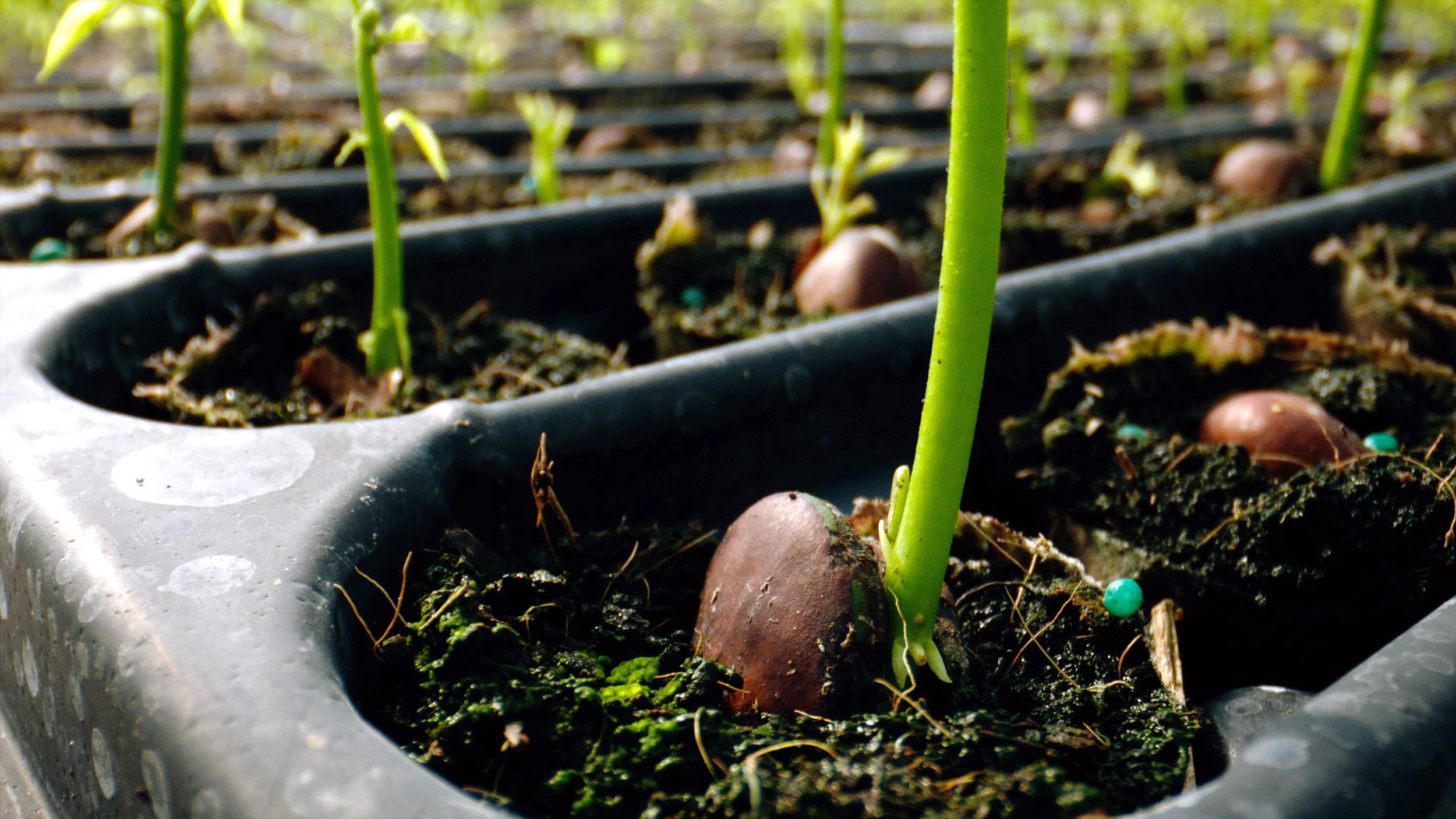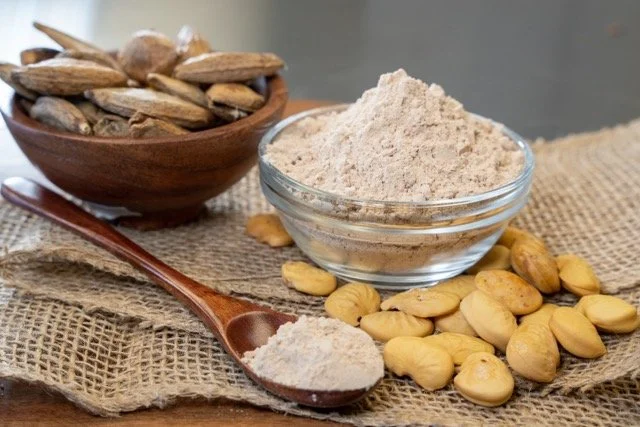
We address two global agricultural challenges: supply threatened by climate change and growing demand for oils and proteins.
We do this with pongamia, a climate-hardy tree with a history of use in reforestation and the ability to help restore degraded land. Terviva has a 10+ year lead in R&D transforming wild pongamia into a “super crop” through advanced genetics, in-field horticultural science, and harvest trials. Our IP portfolio in pongamia-derived products provides partners with access to a wide range of commercialization options tailored to specific customer and market needs.
Global footprint
With plantings on four continents and a global base of strategic investors, we are primed to plant millions of trees for the benefit of billions of people.
Why pongamia?
Pongamia is a regenerative “super tree” historically used for land restoration and in traditional medicine. Pongamia is proof we can use land better, replacing destructive products, while fixing soils.
Terviva, Inc.
We have been singularly focused on maximizing pongamia’s global impact through R&D and real-time trials since 2010.
Why pongamia?
Pongamia is a subtropical tree historically used for reforestation and in traditional (Ayurvedic) medicine. Terviva takes the inherent benefits of this tree and readies it for large-scale deployment to revitalize distressed lands and advance the bioeconomy.
Terviva’s equitable and transparent supply chain includes wild harvesting and orchard models across Australia, Belize, Florida, Hawaii, and India. We're exploring many more opportunities to plant trees and connect with supply chain partners across Southeast Asia and Latin America. Grow with us!
Global footprint
Florida
Terviva partners with growers planting pongamia as an alternative to citrus, a crop adversely affected by climate change and disease. Our “Center of Excellence,” which focuses on genetics and horticultural science, along with our full-scale motherstock nursery, is located near trial plantings to facilitate real-time research and development.
India
With headquarters in Mumbai and team members across India, we manage a robust and transparent wild-harvest value chain. We partner with smallholder and indigenous collecting communities, including more than 1,000 women village leaders who oversee harvesting and bean collection.
Belize
Pongamia offers Belize's citrus industry, dealing with “greening” disease, a sustainable alternative—revitalizing abandoned groves and underutilized land. The country’s existing infrastructure supports efficient pongamia production and transport.
California
Located in the San Francisco Bay Area, a global center recognized for its cultural diversity, innovation, and focus on sustainability, Terviva's headquarters is also home to our products and processing science Center of Excellence.
Australia
The valuable drought-tolerant qualities of pongamia enable the transformation of marginal land into productive pongamia orchards, yielding protein and oil-rich beans and expanding agricultural opportunities for rural communities. Our Queensland-based agronomy team leads our nursery operations to meet Australia’s growing demand for high-yield pongamia motherstock.
Hawaii
Terviva's pongamia trees flourish on O'ahu's North Shore, breathing new life into former pineapple and sugar cane fields by improving soil health and water quality. The orchard thrives on natural rainwater irrigation and solar-powered tools, while native pollinators are attracted to the pongamia flowers.
Terviva, Inc.
Since 2010, we have dedicated ourselves to maximizing global impact through R&D and real-time trials. Our experience, technical expertise, and proven ability to manufacture and scale pongamia-derived products are unmatched.
-
Planted First Iteration cultivars; launching a decade of genetic improvements.
Third-party validation of oil for biodiesel.
-
Second iteration of cultivars developed with advanced propagation.
Third-party validation of oil for renewable diesel.
-
Publication of first Terviva study on cattle feed.
-
Third-party validation of mechanized harvesting.
Enhanced propagation techniques in third iteration cultivars resulted in superior root systems.
-
Filed patent for flavonoid removal from meal.
Fourth iteration trees drove significant advances in horticultural science on field spacing, stem architecture and nutrition.
Developed proprietary system for measurement of flavonoids, critical for product consistency and quality.
First sale of fertilizer.
-
Filed patent for biopesticide.
Filed patent for edible flour.
-
Filed patent for edible oil.
Filed patent for protein ingredient.
-
Third-party validation of mechanized shelling reduces partner costs.
-
Terviva plants 25 acres of trials in Queensland Australia to test water-related stress in drought and flooding prone areas.
-
Isolated 10 unique flavonoids.
Fifth iteration trees demonstrated optimized design and horticultural practices that raise yield.
Terviva identifies combination of genetic varieties that achieve greater than 4 tonnes of beans per acre.
First sale of edible oil (Ponova®) as food ingredient.
Proved ability to manufacture at scale.
-
Completed palatability trials with commercial partners on feed for dairy cattle.
Invented acid soluble protein ingredient resulting in high quality natural product.
-
Sale of ~1,000 MT of crude oil for feedstock (expected).
First sale of animal feed (expected).
First sale of shells for energy.















